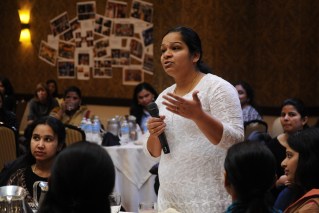International students struggle with Covid’s cruel fallout
From chronic loneliness to going hungry, Covid-19 has brought to light a lack of protection for international students as reports reveal feelings of “abandonment”

The Covid-19 pandemic has given Australian international students in high school and university alike a hard time during the last two years, as mental health, education, poverty, and other living issues have been revealed.
Lack of awareness, education, and initiatives to identify obstacles and stigma associated with mental illness, poverty, and academics exacerbate these problems.
Ding, a Year 10 international student at Indooroopilly State High School, was separated from her family during the pandemic.
“As an international and homestay student, I couldn’t go back to China to meet my parents and sibling…it’s not a good experience at all. I feel like I [became] more anti-social after the pandemic hit, because I’m quite used to being alone.”
As a result of the Covid-19 lockdown, Yao, an international student in Year 11 at Sunnybank State High School, felt “a lot more conscious about the spread of Covid-19 after the lockdown”.
Professor of Policy and Society at University of Sydney, Gaby Ramia, outlines the dire situation faced by international students in Australia during the pandemic.
“The government basically said to international students, in almost these words, you’re welcome to go home.”
“The problem with that was that many of them could not find flights, many of them could not afford flights back to their home countries…they also couldn’t access government payments in the way that the rest of the community (permanent residents and citizens) could.”
This is a situation nearly impossible to escape for international students, especially combined with the unemployment brought on by the economic downfall.
About 7000 international students were surveyed by Ramia and his colleagues across three universities – just over 700 were interviewed during the 2020 lockdown – and they found that the number of students reporting “loneliness” doubled exactly, with 62 per cent reporting feeling lonely during the pandemic as compared with 31 per cent before the pandemic.
Currently, international students are under no protection from the law, which explains why they land in these situations.
A key example of this are policies relating to accommodation. International students with income below a certain threshold, or with small parental incomes and assets, may qualify for rental assistance.
Currently, international students who pay lucrative amounts of tuition alone do not have access to these lifelines, regardless of their income or assets.
Mental health amongst the international student community still carries an air of stigma, research shows
In April 2021, the Council of International Students Australia (CISA) conducted a survey of 107 international university students from across the nation, which found that a staggering 94 per cent of participants had testified to experiencing stress about their circumstances as a result of implications from Covid-19.
Seven out of ten of the respondents had reported self-diagnosed anxiety and/or depression.
International Student Support Teacher at Sunnybank State High School, Ramona Moodley, believes that distance from family had a significant impact on student wellbeing.
“They were restricted from going overseas, [from] going back home, so lots of them were impacted by their family ties especially, amongst other things.”
“Some of them haven’t seen their family for about three to four years, which is a long time. They were feeling homesick and some of them were experiencing some mild depression, but we got there.”
Ramia has been working with Dr. Isabella Choi, a psychology researcher at the University of Sydney, who has initiated a research project to encourage international students to seek help though an online mental health intervention program.
In an article written by the University of Sydney, Choi said that “international students are a high-risk group for mental illness because they have to adjust to unfamiliar environments, culture, and academic practices”.
Choi said that there was “poor mental health literacy” and “stigma associated with getting help for mental health needs” within the international student population. This, combined with a lack of knowledge about Australian mental health services, inhibited their ability and confidence to get help.
Moodley emphasised that there is an abundance of support for international students who are struggling.
“In our school, apart from myself and Ms Dee, the ISP coordinator, we’ve got our school nurse…and our teaching staff [are] very good because we all take a personal interest in our students, and we all look out for their wellbeing.”
This poses the question as to whether or not international students are truly valued in the country that so enthusiastically welcomes them.












